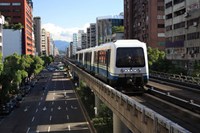
“The commuter rail industry is fully committed to implementing Positive Train Control (PTC), but there are still several challenges to complete national implementation of this critical safety technology by December 31, 2015. News reports that suggest that PTC is fully developed and ready to be installed across the country are not accurate.
“PTC is a complex technology that would prevent derailments from trains moving too fast and it would prevent collisions between trains. In addition, PTC would also prevent trains from entering work zones and prevent the movement of trains through switches left in the wrong position.
“At the time that Congress mandated PTC in the Rail Safety Improvement Act of 2008, this technology was not a mature technology. Working in coordination with the Federal Railroad Administration, the freight rail industry, and Amtrak, the commuter rail industry has spent a significant amount of time and resources in developing this technology and there is still work that remains to be done so that it is safe and effective. It would be ill-advised to rush forward to meet a deadline, rather than taking the necessary time to implement this complex technology properly and safely.
“Additionally, PTC is a communications intense technology which requires radio spectrum to transmit data between trains and communications towers. Acquiring radio spectrum is a second significant challenge in implementing PTC. The American Public Transportation Association (APTA) has asked the Federal Communications Commission (FCC) to allocate free radio spectrum for commuter railroads as a public safety priority, yet so far, it has refused to do so. Congress has not requested the FCC to do this either, despite the fact that they mandated the implementation of this safety technology.
“A third challenge is the funding needed to develop and install this new safety technology. A recent survey conducted by APTA of the commuter rail industry in the United States shows that at least $3.48 billion is needed to implement PTC nationally. This figure is considered a conservative estimate and it does not include the cost of buying radio spectrum.
“As of April 2015, publicly funded commuter rail systems have spent $950 million. Fifty percent of these commuter rail systems said that they were deferring other capital programs to implement PTC. Examples of deferred programs that impact the state-of-good-repair include: bridge rehabilitation, signal upgrades, track improvements, and safety projects at railroad crossings.
“Despite the need for billions of dollars to implement PTC on commuter rail systems across the country, Congress has only allocated $50 million for this priority safety mandate. APTA has urged Congress to provide 80 percent of PTC costs on commuter railroads. In addition, APTA has asked Congress to direct the FCC to provide free radio spectrum for PTC on commuter and intercity passenger rail.
“At present, only 29 percent of commuter rail agencies say that they can meet the deadline for PTC implementation in December. Instead of pursuing a hard deadline that most commuter railroads cannot meet, APTA would like the Department of Transportation to have the authority to provide extensions on a case by case basis, in order to accommodate specific railroad needs and circumstances.
“In conclusion, the commuter rail industry is 100 percent committed to developing and installing the technology, as well as acquiring radio spectrum for positive train control. Despite our best efforts, implementing PTC nationwide by the end of this year is not possible. This was never a realistic deadline set by Congress. The industry has already spent $950 million and conservative estimates are that $3.48 billion is needed to implement it nationally on commuter rail. So far, Congress has only provided $50 million for this critical federal safety technology. We call on Congress to provide funding for this safety technology that will save lives.”




Comments
There are no comments yet for this item
Join the discussion